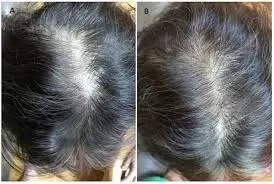- Home
- Medical news & Guidelines
- Anesthesiology
- Cardiology and CTVS
- Critical Care
- Dentistry
- Dermatology
- Diabetes and Endocrinology
- ENT
- Gastroenterology
- Medicine
- Nephrology
- Neurology
- Obstretics-Gynaecology
- Oncology
- Ophthalmology
- Orthopaedics
- Pediatrics-Neonatology
- Psychiatry
- Pulmonology
- Radiology
- Surgery
- Urology
- Laboratory Medicine
- Diet
- Nursing
- Paramedical
- Physiotherapy
- Health news
- Fact Check
- Bone Health Fact Check
- Brain Health Fact Check
- Cancer Related Fact Check
- Child Care Fact Check
- Dental and oral health fact check
- Diabetes and metabolic health fact check
- Diet and Nutrition Fact Check
- Eye and ENT Care Fact Check
- Fitness fact check
- Gut health fact check
- Heart health fact check
- Kidney health fact check
- Medical education fact check
- Men's health fact check
- Respiratory fact check
- Skin and hair care fact check
- Vaccine and Immunization fact check
- Women's health fact check
- AYUSH
- State News
- Andaman and Nicobar Islands
- Andhra Pradesh
- Arunachal Pradesh
- Assam
- Bihar
- Chandigarh
- Chattisgarh
- Dadra and Nagar Haveli
- Daman and Diu
- Delhi
- Goa
- Gujarat
- Haryana
- Himachal Pradesh
- Jammu & Kashmir
- Jharkhand
- Karnataka
- Kerala
- Ladakh
- Lakshadweep
- Madhya Pradesh
- Maharashtra
- Manipur
- Meghalaya
- Mizoram
- Nagaland
- Odisha
- Puducherry
- Punjab
- Rajasthan
- Sikkim
- Tamil Nadu
- Telangana
- Tripura
- Uttar Pradesh
- Uttrakhand
- West Bengal
- Medical Education
- Industry
Dual wavelength low level light therapy may increase hair density in alopecia areata, finds Study

Dual wavelength low-level light therapy may increase hair density in alopecia areata, finds a study published in the Dermatologic Surgery.
The light-emitting diode cap being investigated is FDA cleared for the treatment of androgenetic alopecia (AGA). Evaluating 3 versions of a red and blue light LED cap: (1) 625- and 660-nm red light, (2) 425-nm blue light, and (3) both 425-nm blue light and 625- and 660-nm red light against sham.
Twenty-six-week, multicenter, randomized, controlled, double-blinded study. Adults aged 18 to 65 years with AGA were randomized to an active device or sham and underwent 10-minute treatments daily. RESULTS : One hundred sixty subjects were randomized. Ninety-one subjects were excluded for the per-protocol analysis.
The per-protocol population included participants who completed 16 weeks of treatment, had no major protocol violations, and were at least 80% treatment compliant. Although the primary endpoint (mean change in non-vellus hair count from baseline to week 16) did not reach statistical significance in the individual study arms, in the pooled analysis (combining the 3 active study arms), there was a statistically significant (p = .033) difference versus sham.
The pooled study cap group achieved 28.5 more hairs per cm2 when compared with sham. The LED caps were well tolerated and increased hair density in patients with AGA
Reference:
Thomas, Meryl MBBS, MMed(Clin Epi)*,†; Stockslager, Max PhD‡; Oakley, John BSc‡; Womble, Thomas Matthew BSc, MSc§; Sinclair, Rodney MBBS, MD*,‖. Clinical Safety and Efficacy of Dual Wavelength Low-Level Light Therapy in Androgenetic Alopecia: A Double-Blind Randomized Controlled Study. Dermatologic Surgery ():10.1097/DSS.0000000000004509, December 16, 2024. | DOI: 10.1097/DSS.0000000000004509
Dr. Shravani Dali has completed her BDS from Pravara institute of medical sciences, loni. Following which she extensively worked in the healthcare sector for 2+ years. She has been actively involved in writing blogs in field of health and wellness. Currently she is pursuing her Masters of public health-health administration from Tata institute of social sciences. She can be contacted at editorial@medicaldialogues.in.
Dr Kamal Kant Kohli-MBBS, DTCD- a chest specialist with more than 30 years of practice and a flair for writing clinical articles, Dr Kamal Kant Kohli joined Medical Dialogues as a Chief Editor of Medical News. Besides writing articles, as an editor, he proofreads and verifies all the medical content published on Medical Dialogues including those coming from journals, studies,medical conferences,guidelines etc. Email: drkohli@medicaldialogues.in. Contact no. 011-43720751


